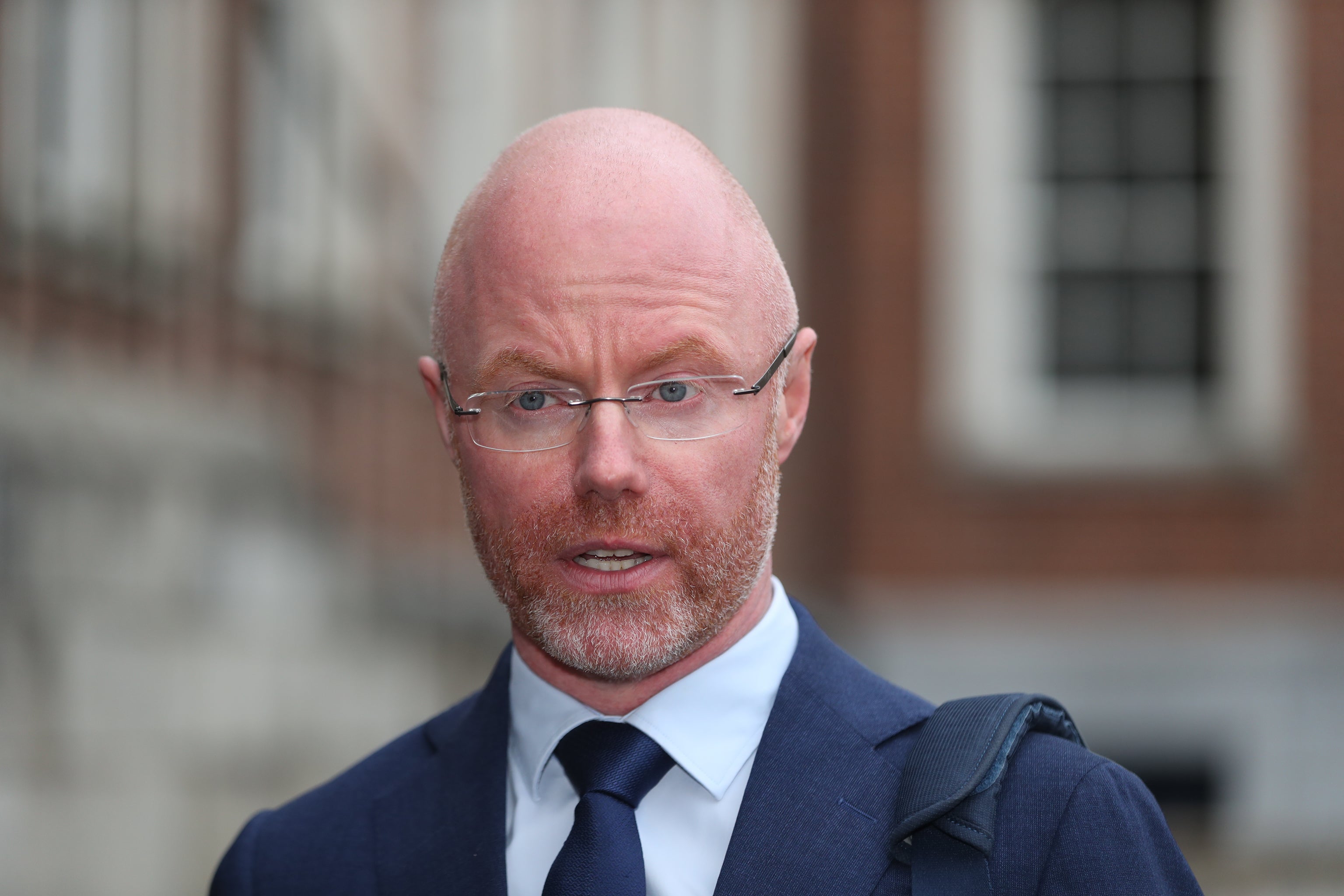Booster vaccination dose gap in Ireland to be reduced to three months
Health Minister Stephen Donnelly said he has accepted a recommendation that the gap between vaccination and booster should be reduced to three months.

Your support helps us to tell the story
From reproductive rights to climate change to Big Tech, The Independent is on the ground when the story is developing. Whether it's investigating the financials of Elon Musk's pro-Trump PAC or producing our latest documentary, 'The A Word', which shines a light on the American women fighting for reproductive rights, we know how important it is to parse out the facts from the messaging.
At such a critical moment in US history, we need reporters on the ground. Your donation allows us to keep sending journalists to speak to both sides of the story.
The Independent is trusted by Americans across the entire political spectrum. And unlike many other quality news outlets, we choose not to lock Americans out of our reporting and analysis with paywalls. We believe quality journalism should be available to everyone, paid for by those who can afford it.
Your support makes all the difference.The recommended gap between receiving the Covid-19 booster jab after the primary vaccination is to be reduced to three months.
Health Minister Stephen Donnelly said he has accepted a recommendation from the National Immunisation Advisory Committee (NIAC) that the gap between the second dose of the jab and booster should be reduced from five months to three.
“Boosters will continue to be offered in the priority order previously recommended,” Mr Donnelly added.
Previously those who received the Pfizer, Moderna or AstraZeneca jabs had to wait at least five months after their second dose before they were eligible to receive a booster.
More than 1.2 million doses of the booster vaccine had been given in Ireland by this week.
Earlier, Environment Minister Eamon Ryan said the Government has real and valid concerns about the threat posed by Omicron and cannot rule out the need for further restrictions.
Mr Ryan stressed the importance of getting as many booster doses delivered as possible in the weeks ahead.
His comments came amid further reports of long queues at vaccination facilities in several parts of Ireland on Monday as people waited for Covid-19 jabs.
Mr Ryan downplayed the prospect of cancelling flights into Ireland as a way to slow the spread of the variant, insisting that the open land border with Northern Ireland meant it was impossible to “lock off” Ireland.
He said scientists were still awaiting comprehensive data on the severity of the illness caused by Omicron.
“There is real concern, I think they are valid concerns,” he said.
“So we will continue to watch obviously what the health authorities in Europe are saying and listen to our own health authorities.
“My sense is still the basic message still should be the same, we do need everyone to try and get that booster done. That will, it seems, give further protection.
“And then it’s the basic measures – it’s good ventilation, good social distancing, the basic things we’ve learned over the last two years.”
Mr Ryan said the Government would be examined plans later in the week to step up the booster programme further.
“I think that’s probably the first, best, most important reaction and response,” he told RTE Radio One.
“And we need to do that in response to the Delta wave which is here anyway, we still have 4,000-plus cases a day, so that use of the booster vaccine to protect against that is needed in any case, regardless of Omicron.
“So any further measures, we’ll continue to look at that with our health authorities.”
Asked if he could rule out further restrictions, the Green Party leader added: “I think in this virus what we’ve learned is never to rule anything out.
“We’re still awaiting the scientific analysis. And I think what we’re best doing though is following science, is looking at what our European colleagues are doing so to make sure that we’re part of a wider response. You can’t just work this if you just do it on your own.
“So I don’t think we can rule anything out but at the same time what we have seen I think that maybe gives people some hope is that the numbers in our hospitals have stabilised in the last number of weeks, we want to keep that going and that’s one of the metrics that will obviously be used to watch to see what’s happening to our health system.”
On Monday, the Department of Health notified another 4,688 confirmed cases of Covid-19.
These included an eight additional cases of the Omicron variant, bringing to 18 the total number of cases that have been identified in Ireland.
As of 8am on Monday, there were 518 Covid positive patients in hospital, of whom 108 were in intensive care.